The dos and don’ts of camping – including tips on tackling the rain

It’s fair to say that you don’t encounter many life or death experiences when camping in the British Isles. In my role at hipcamp.com, the world’s largest booking site for outdoor stays, I’ve chatted to Canadian colleagues who store food in “bear bunkers” and Australian teammates who’ve hosted webinars on spider bites. Meanwhile, I get my knickers in a twist when I bring a kilo of margarine on holiday thinking it’s the tub I filled with bolognese.
Still, though most British camping mistakes shouldn’t result in fatalities, they could make you fairly miserable. Some may lead to serious shoe damage (did you forget the mallet again?) while others might mean abandoning the holiday early, especially if the famously unpredictable UK weather is not on your side. Here are 10 tips to avoid such disasters…
Do: take Friday afternoon off
There’s a whole series of Channel 4’s Taskmaster waiting to be filmed at a campsite – and it begins with setting up a new tent in the dark. If you’re going for a weekend’s camping, avoid starting hungry, in the pitch black, with tired kids. Arrive before the weekend begins and you get the pick of the pitches – an advantage not to be underestimated – as well as a more stress-free environment to set up in. You’ll also have time to orientate yourself, unpack properly, start cooking your evening meal – and smugly watch the antics unfold when the latecomers finally arrive.
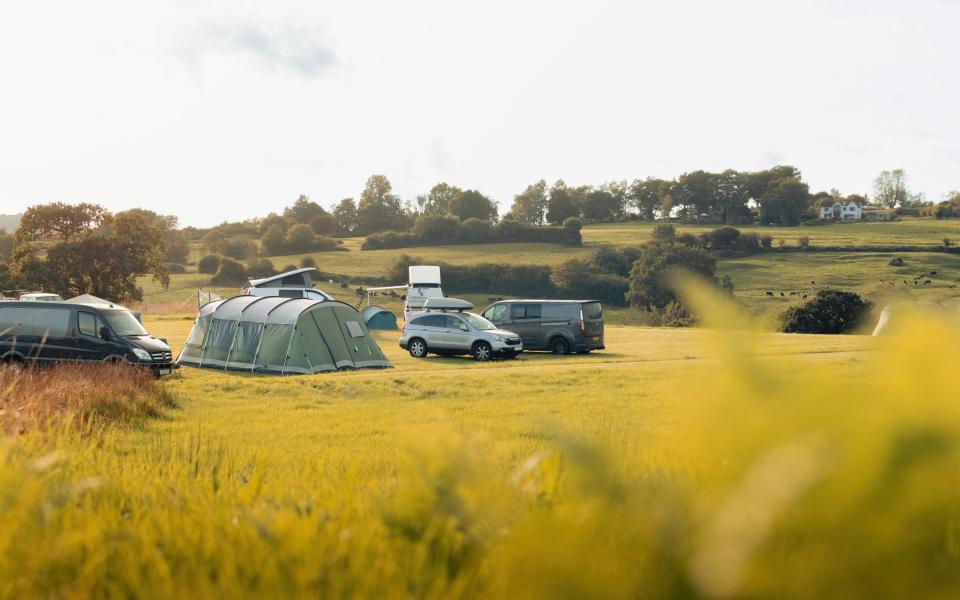
Do: ask your host for recommendations
Campsite owners are, almost always, salt-of-the-earth local folk; some may have been living or farming in the area for generations. Tripadvisor will tell you where every other holidaymaker on the campsite will be rushing for breakfast if rain threatens play; your host is more likely to know the lesser-known café that doesn’t have a website. Ask them for recommendations when you check in and tell them your plans for the weekend: they’re well placed to warn you of closed roads, over-hyped attractions and tricky parking places.
Do: have a campfire (if you can)
In Australia they call a campfire a “bush telly”. Rightfully. Staring into the flames is far more entertaining than the usual Saturday night schedules and creates a warm, quietening ambience, whether you’re snuggling à deux or camping with a large group. In more sensitive areas such as national parks, there are fewer sites allowing fires, but websites such as hipcamp.com have a filter to find those that do. If campfires are allowed, book a firepit and logs, and remember to bring matches and some newspaper.
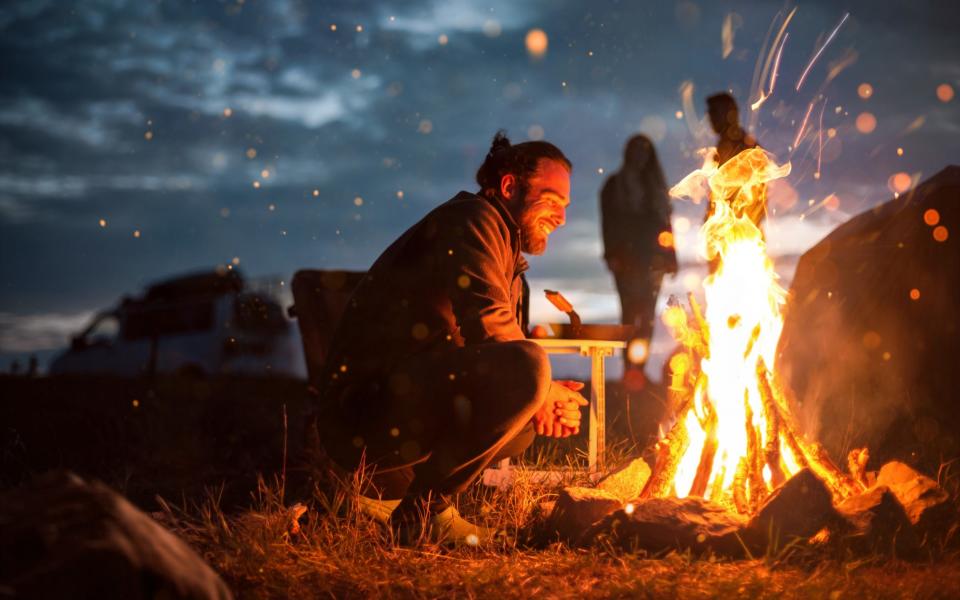
Do: fiddle with your tent – especially if it pours
The vast majority of tents comprise two layers; the outer waterproof skin and the inner bedroom lining. In rainy weather, avoid dragging mud and moisture into your sleeping space by taking down the inside layer (look for the duffle-coat-style toggles) and then turn your tent into an event shelter where you can hide from the wind and rain – most will accommodate a table and chairs. If the forecast looks wet before you set off, invest in a cheap tarpaulin to tie between your car boot and your tent for extra space. Use longer cord on one side, creating a slope for the water to run off.
Do: peg out your guy ropes
It’s a lovely day, and the tent is all set up. Thoughts inevitably turn to not pegging out those extra guy ropes and, instead, having a congratulatory cup of tea. Surely that unnecessary faff is reserved for arctic explorers… and organised people who have enough pegs? But, against a backdrop of Britain’s bizarre weather, it’s definitely worth doing. In any case, guy ropes aren’t just designed to keep the tent sturdy when the wind picks up, they uncover vents, stretch the tent, and encourage the right airflow. The moisture that forms inside a tent is rarely from a leak: it’s more often due to condensation, so opening up vents and mesh panels where possible is, counterintuitively, often the best way to stay warm and dry.
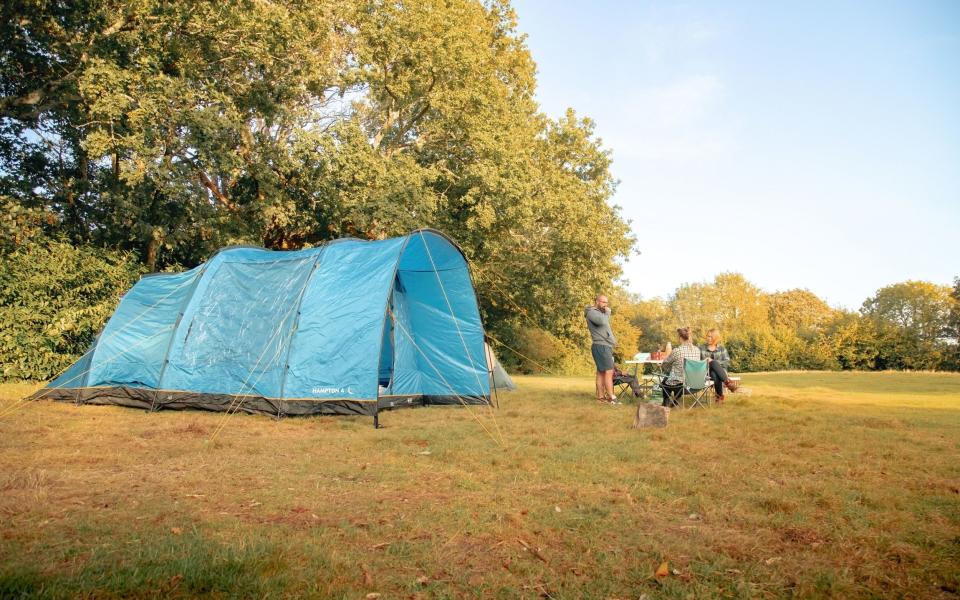
Don’t: rely on the campsite shop
Every human has a natural rate of Packing Diligence Decline (PDD). You start off decanting table salt into an old Tic Tac box. You end by throwing loose clothing into the boot crying, “I’m sure it’s already in there.” The further into your decline, the higher your propensity to assume the campsite will have a well-stocked shop covering all the things you’ve forgotten. In fact, plenty of campsites don’t have a shop at all, they just sell a few logs and cartons of eggs at reception. And if there is a shop, don’t count on it having the exact gas canisters needed for your stove, as these come with a multitude of fittings. Find a packing list online to tick off before you go and, if you need gas, ring ahead to check that your campsite stocks it.
Don’t: fret about the kids
“I usually deal with two or three sets of hysterical parents per day on busy weekends,” a particularly family-friendly campsite owner in the Chilterns once told me, about the panic that sets in when a child goes walkabout. “It’s standard practice.” Cue his usual routine of shutting down and searching the site, only to find the child happily picking daisies with a group of new-found friends.
Of course, I’m not encouraging carelessness. But if you’re taking your children camping, remember to embrace the space of the outdoors and their natural curiosity. Don’t get caught up in strict bedtime routines, clean hands, and perfect diets. Be aware of campsite hazards – particularly water – and keep a watchful eye, but encourage them to enjoy some freedom and revel in the time they spend away from devices.
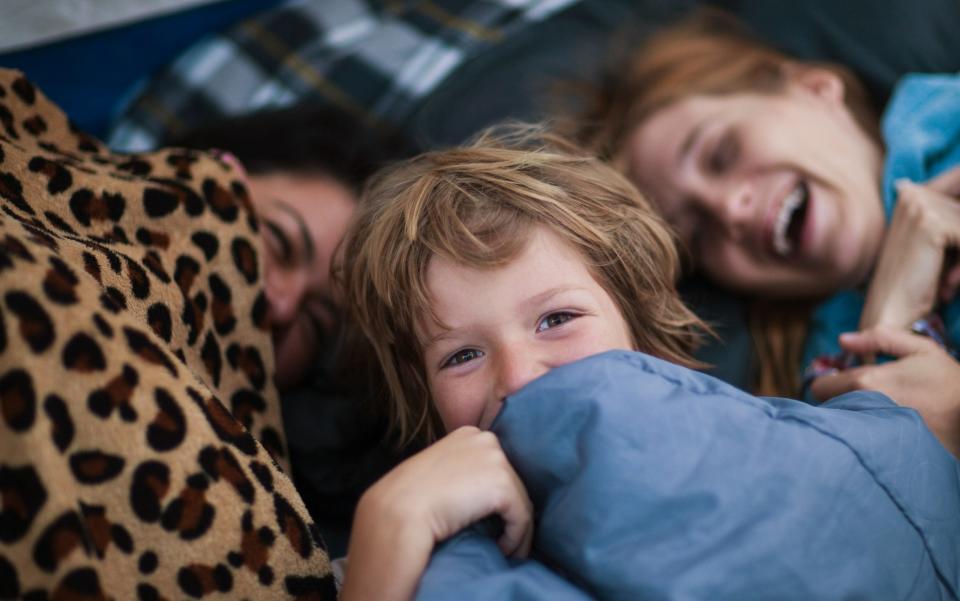
Don’t: expect a lie-in
I’m not saying you won’t sleep well – cool, fresh air is nature’s sedative. Just don’t expect a long, lazy morning in bed. Camping is about being out in nature, gathering with friends and breaking your normal routine (it might be wise to focus on all of this instead of the fact that the local cockerel has foghorn lungs). Some modern tents, such as Coleman’s BlackOut range, have specially designed fabrics so you don’t rise with the sun and it’s always a good idea to bring proper pillows and extra blankets so you don’t get cold. All the same, it’s hard not to wake when the rest of the campsite does. Enjoy listening to birds you don’t hear at home, rekindling the campfire, and soaking up the calm, dewy ambience of early morning.
Don’t: go to the pub every night
It’s always wise to book a site with a good local, or at least a nearby chippie. Skip the cooking entirely, though, and you miss out on one of camping’s greatest communal pleasures. Often involving gathering around a campfire, the exercise of cooking (and drinking) outdoors is a wonderfully sociable activity. Many of my fondest memories involve charred sausages, food straight out of a saucepan, and mucking in with friends, each providing a little something for the meal. You can make it easier by pre-cooking at home (frozen bolognese, stew or curry act like a handy cooler-box freezer blocks while they defrost) and sticking to one-pot meals that require minimal fuss.
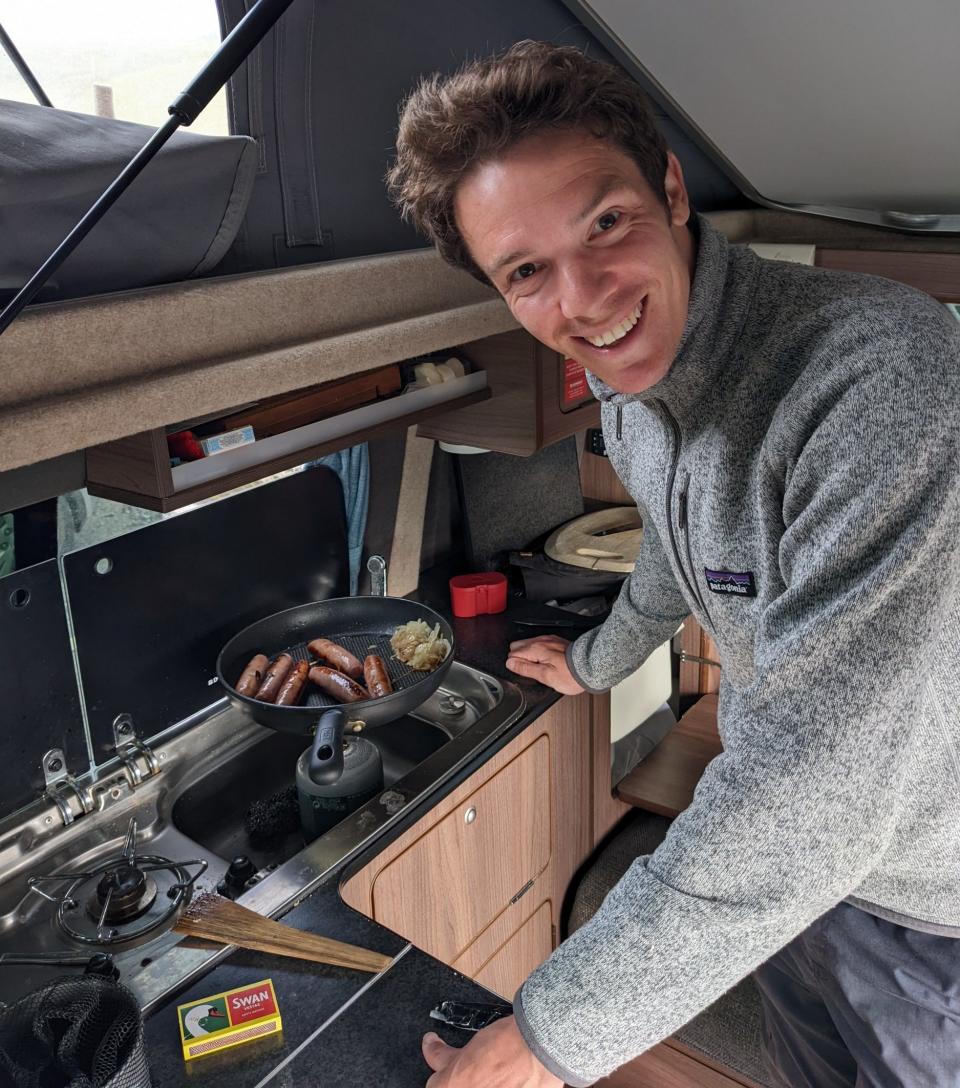
Don’t: panic…
It’s easy to overlook salt, matches, washing-up liquid, tea towels, a corkscrew, torches (head torches are best), bin bags, a sharp knife and water containers. But if you do forget something, don’t worry too much. What you can’t borrow from other campers, you can improvise. Forgotten the plates? Use a slice of bread instead. Left your pillow at home? Stuff some clothes into a T-shirt. Overlooked the camping chairs? Sit on a bin bag or an upturned bucket. It’s all part of the adventure.


